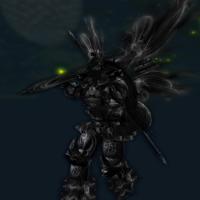The dark and light schools of the hermetic seeker do have modern counterparts, and the two schools also have two facets each.
The seekers who gave emphasis to the forces of light were known as theurgists, and later as priests. Among the light oriented seekers the two facets are the puritans, or those who seek to completely ignore the dark, and the other light oriented seeker could be called a theologian. One who seeks to understand God in totality no matter what face the divine might present.
Theurgy is doing the divine work. Seeking by your behaviour and ritual to work with divine agents to further the divine will which is seen as in the greatest interests of life itself. Theurgy is serving the greater good, or serving ones personal good by sanctified means.
Does this mean both sacred and profane actions? Using both? Actually, just sacred. Hermetic scholarship itself includes an understanding of both, but theurgy seeks only to use the sacred to better the self or the community.
On the dark side of hermetic scholarship… The dark oriented seeker was the demonologist, and many priests historically were also demonologists. These individuals studied to understand the nature and behaviour of the dark powers in the world in order to gain influence over them. Either to exclude their presence from ones personal life or their activities from the life of the community. This specific practice being called exorcism. Or to direct the behaviour of these dark powers in the effort to further personal gain as it is seen that the dark powers have influence in the creative process. The facet of the demonologist being the demonolator, one who aligns themselves with the dark powers for any of a variety of reasons. The most common being the belief in the primary authority of this dark entity over the world itself.
To control them for personal benefit or for larger benefit? Potentially either, even both.
Now the line between the two camps is not rigid, and not even deliberately drawn by hermetic seekers themselves.
Are these the people that pissed off the daemons? The Hermetics? Not all of them. Demonolators? Oh no, though some historically have. It’s been a rocky relationship.
That was much earlier? Actually came later. The first breach of trust was between the puritans and the divine powers, those who thought to shun any part of creation.
During the Daemon class, you said they tried to help us, but then some people learned how to control them and started a sort of war between us and the daemons. That’s what I was referring to. That would be the demonologists. The demonolators are those who recognize the authority of the dark powers and make no effort to control them.
Your thoughts are welcome. Be well friends.
Travis Saunders
Dragon Intuitive
~science,mysticism,spirituality~

